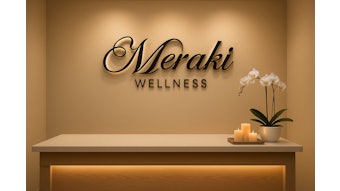
Paperwork may seem like the least relaxing thing when arriving to the spa, but an intake form is the surest way to guarantee a relaxing departure. This form helps estheticians identify red flags before recommending treatment. Certain health conditions require modifications to ensure safe practice, and the intake form serves as a document that protects both you and your client.
The questions on the intake form should collect the necessary information for you to perform effective treatments safely. Allergies, medications, surgical history, significant medical conditions, lifestyle habits and topical product use will shape the treatment you agree upon. To make your clients happier, you may consider implementing a more thorough form for the initial consultation, and a simplified update and review on each day of treatment.
Current Medications
What are your clients' current medications? Many medications can cause thinning and fragility of the skin. Specifically, you want to be aware of medications that are photosensitizing, hypersensitizing or indicate a significant health condition. These clients will need modifications to the treatment modalities used and the level of exfoliation administered.
Blood thinners such as Warfarin, Coumadin, Xarelto, and even aspirin are anticoagulants, and will cause the client to have thin skin and increased bleeding which will be challenging to control. These clients are more likely to be left with "marks" from extractions and waxing, and often bruise easily, limiting some treatments. These clients typically have a heart condition, and treatments that require a higher pain tolerance may be reconsidered to reduce stress.
Antibiotics such as amoxicillin, doxycycline, and tetracycline will increase sensitivity to abrasion, peels, and waxing for up to three days post-use. Extreme caution must be taken with sun exposure, especially in the summer months, to avoid burns and hyperpigmentation.
Topical Prescriptions
Are your clients using any topical prescriptions? I recommend inquiring about topical creams separate from the medication list on your form, as clients don't often consider dermatological prescriptions to be medications, sometimes leading to major missed contraindications. For instance, waxing a client that uses a high-strength topical could result in the equivalent of a first-degree burn.
Retinols: Avoid waxing and more abrasive skin care treatments such as microdermabrasion if the client has used retinol in the last three days.
Accutane: Clients using Accutane will experience extreme sensitivity, and may not be a candidate for even the most basic treatments for at least six months following use.
Allergies and Intolerances
You want to be very familiar with the ingredients in your clients' products. Some allergies are tied to other allergies that are not commonly known. For example, salicylic acid is an active metabolite of aspirin, so clients with an allergy to aspirin must also avoid peels and products containing salicylic acid.
A client with a latex allergy may also have an allergy or intolerance to fruits with similar proteins such as bananas, passionfruit, kiwi and tomato. Swelling and irritation may be observed in clients who have a known allergy to latex. and are treated with fruity treatments, particularly organic skin care. An allergy to shellfish will contraindicate the use of most cold-modeling masks. Other allergies to be mindful of include nuts, dairy, parabens, fragrances, dyes and plant extracts.
Health Conditions and Modifications
Understanding modifications that should be made to skin care treatments regarding a client's health condition is crucial to avoid potential allergic reactions and adverse complications.
Diabetes
Diabetes is an immunocompromised disorder that affects the healing time of wounds. With diabetes, insulin production affects gland activity and the skin can appear dry, thickened or inflamed. The client may experience reduced pain sensation and slow healing, making them poor candidates for intensive resurfacing treatments and strip wax.
Epilepsy/Seizures/Heart Conditions with Metal Plates
For clients with such conditions, treatments that involve high frequency, microcurrent and LED are contraindicated. History of epilepsy and seizures also presents the risk of involuntary movements often initiated by stress, which renders these clients poor candidates for treatments that require them to remain perfectly still, like microblading or lash extensions.
Thyroid Disorder
With thyroid disorder, the client may have an over-active or under-active thyroid, each with different representations. Hyperthyroidism may cause unwanted hair growth and this client may benefit from more advanced hair removal modalities. Clients with hypothyroidism will have poor circulation, dryness of the skin and hair, and an intolerance to cold, and benefit from paraffin treatments and products rich in moisture and natural oils.
POTS and Vertigo
Postural orthostatic tachycardia syndrome (POTS) is a condition where blood flow and heart rate increase on changing the posture, such as lying down to sitting up or standing. Vertigo is the feeling of spinning when not moving, and can be triggered by postural change such as sitting up to lying down and vice versa. These conditions can cause dizziness, nausea or fainting. Limit reclining the client and advise that they take any prescribed or over-the-counter medications before visits.
Cancer
The power of touch is more beneficial than you realize for clients with cancer. Lymphatic drainage in your massage technique will help to mobilize larger particles that build up in the lymphatic system that is no longer efficiently transported due to the removal of lymph nodes or loss of tissue following radiation treatment. Lymphatic drainage can reduce unwanted swelling caused by lymphedema.
Customize Your Intake Form
It's not always a pimple. I share this story to promote out-of-the-box thinking and encourage you to design an intake form that covers all grounds based on real encounters. I had a client come in for his first facial, solely to have a large pustule extracted on his lower cheek for an event he had that weekend. Squeeze after squeeze, the lesion was purulent with no sign of relief. Finally, I asked if he was experiencing any tooth problems. Yes, a dental infection can be so severe that facial cellulitis can develop on your cheek, jaw, or underneath your eyes, and the only thing we can do for that is point them to the nearest dental office. No questions on the intake form are random, and it hurts less to ask.











